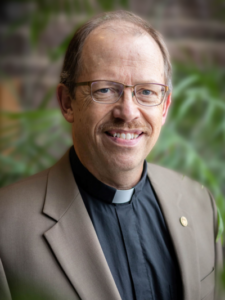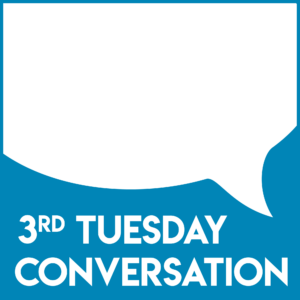Oops! The link in the 11/29/22 e-news might have taken you here. If you’re looking for Jack’s blog, go here.
But if you haven’t read John’s post from last week yet, you should!
—-
 By Pastor John Hulden
By Pastor John Hulden
Teenagers are amazing. In my 35+ years of trying to be a pastor, it is a good day when I get to hang out with teenagers.
Yep, sign me up for those long bus ride trips with teenagers. They are much better group travelers than full-grown I-know-what-I-want adults. One thing I’ve figured out, teenagers are much better dealing with authority than old people.
“Teenagers are much better group travelers than full-grown I-know-what-I-want adults.”
Perhaps it’s because teenagers, unlike most old people, are used to doing stuff they don’t want to do all day long. As an old guy, I try to work my life so that I don’t have to do activities I don’t want to do all day long. Teenagers often don’t have that luxury.
I try to listen when there is expert advice in connecting with teenagers. Here’s why: My hunch is that, if something works for teenagers, it also will work for their elders.
ONE OF THE PODCASTS on my phone is “3rd Tuesday Conversation” from the ELCA Youth Ministry Network folks. The three hosts are really cool people from our very own Minneapolis Area Synod!* The guest on their September podcast (E48, 9/20/22, 34 minutes) was Kara Powell, executive director of Fuller Youth Institute, talking about her new book: “3 Big Questions That Change Every Teenager.” 
Kara talked about how teenagers want deeper conversation. (Don’t old people, too?) Teenagers want to talk about what is important to them, what is troubling them, what is inspiring them. (Is that the same for you?)
“On the podcast, Kara Powell talked about how teenagers want deeper conversation.”
Research with 2,200 diverse teenagers showed them asking three big questions:
- Who am I?
- Where do I fit?
- What difference can I make?
(Don’t we all have ongoing questions about our identity, belonging, and purpose?)
HOW DO WE HAVE conversations that get to these bigger questions – with teenagers or anyone else?
I suppose the simple answer is just listen. But listening doesn’t always come naturally.
I’ve heard Felicia Boone, the synod’s wise and esteemed synod vice president, remind me and others more than once to “W.A.I.T.” To remember to ask yourself: “Why Am I Talking?” I suppose it is as simple as “Why do you think God gave us two ears and only one mouth?” Yep, but this learning doesn’t come easy for me. It takes moments to learn, a lifetime to master.
Perhaps you’ve heard about our synod’s effort in Faith Practices and Neighboring Practices. The gift of a Lilly Endowment grant has given us time and resources to help more than a dozen congregations to practice deep listening, … to God, … to neighbor, … with no agenda. It’s so simple and so challenging.
“Why do you think God gave us two ears and only one mouth?”
It’s easy to understand that difficult things take practice. Malcolm Gladwell, author and podcaster, has become famous by pointing out the rule: It takes 10,000 hours of intensive practice to achieve mastery of complex skills and materials. In the early 1960s, the Beatles played for days on end at the strip club Indra in Hamburg, Germany. Hour after hour, day after day, they played a few of their own songs, but also did covers of a vast array of musical styles and songs. Lo and behold, the Beatles got pretty good at what they do.
I’m often surprised how simple things need practice, too: saying thank you; using your turn signal; slicing a bagel without going to the ER; listening.
In a few days the biggest annual holiday where no gift giving is required will be here! Join with me in being curious about the folks sitting at the Thanksgiving table. What is important to them? How do they connect to their community and the world? What do they know well enough to teach others? What would they like to learn? Ask questions. WAIT. And enjoy the practice of listening this holiday season.
————————-
*3rd Tuesday Conversation hosts:
- Dannica Olsen is the Director of Youth Ministry at Westwood Lutheran Church in St. Louis Park.
- Adam Butler is lead pastor at Trinity Lutheran Church in Long Lake.
- Elizabeth Pedersen is a Deacon and directs the high school ministry at Lord of Life Lutheran Church in Maple Grove.

